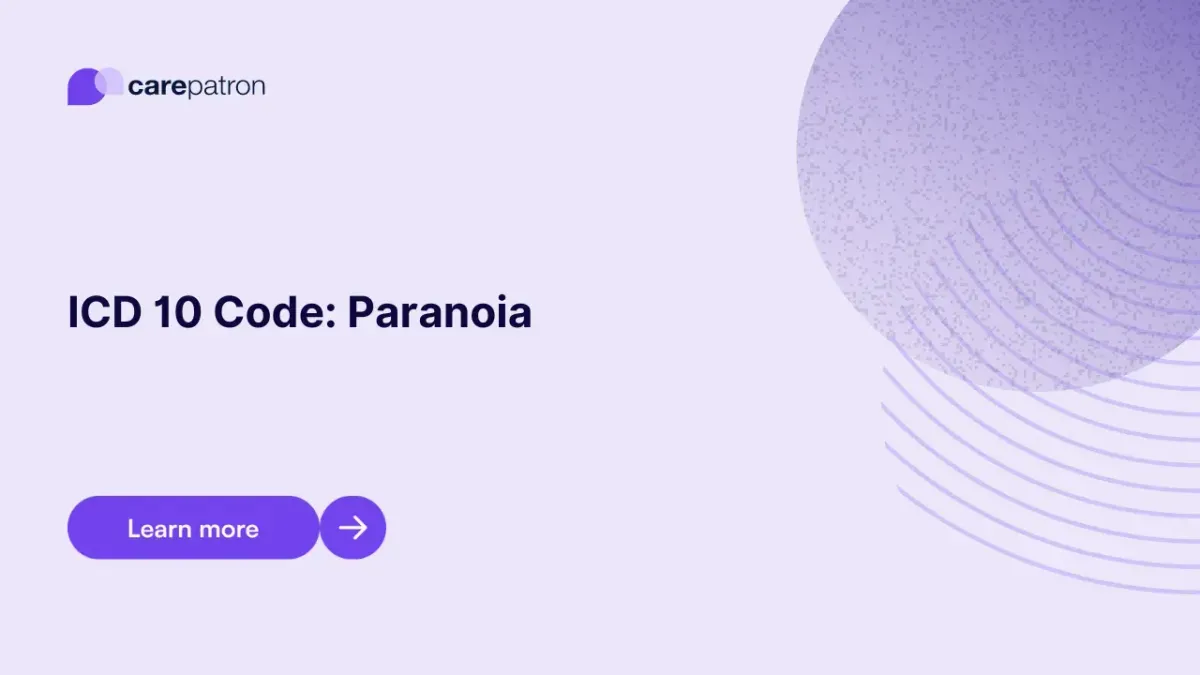
Paranoia ICD-10-CM Codes
Read this short guide to learn about Paranoia ICD codes you can use!
Use Code
Commonly asked questions
Some people become paranoiacs because of traumatic experiences. Traumatic experiences can severely impact a person’s mental health, and becoming paranoid is one of the unfortunate consequences of specific traumatic events.
They will conduct comprehensive examinations of patients to determine what caused it. If the paranoia is not the result of alcohol consumption or a neurological problem, they will likely interview the patient and have them answer assessments. Professionals will cross-check the results with the latest edition of The Diagnostic and Statistical Manual of Mental Disorders.
This will depend on how severe the paranoia is. Treatment may include antipsychotic medicines and different types of psychotherapy.
EHR and practice management software
Get started for free
*No credit card required
Free
$0/usd
Unlimited clients
Telehealth
1GB of storage
Client portal text
Automated billing and online payments
